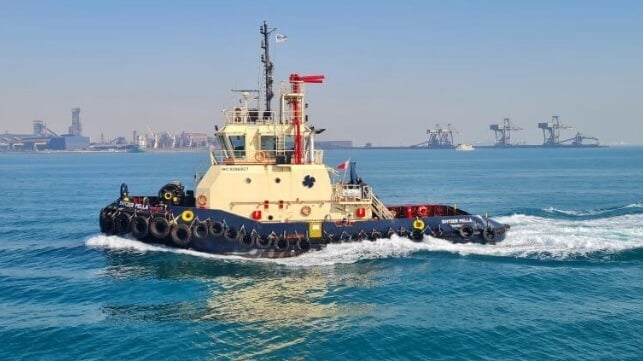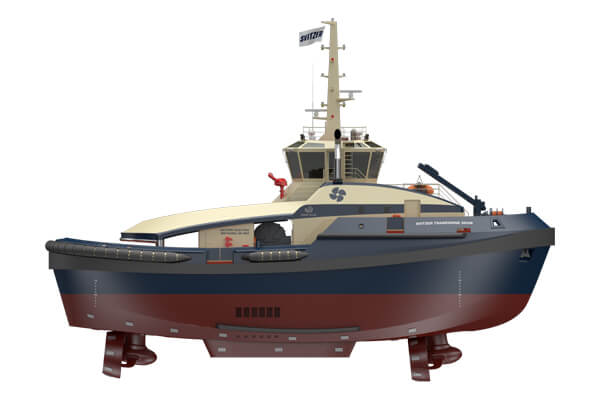Svitzer Orders First Battery and Methanol-Fueled Tug from Uzmar

Svitzer, the global towage company that was recently spun off by Maersk, is adding a new dimension to low-emission shipping reporting it has ordered the first battery-electric tug with methanol-dual fuel engines. The tug will be based in Gothenburg, Sweden, and Svitzer expects it will be able to conduct more than 90 percent of its escort tug duty using its battery-electric powertrain with the methanol engines for backup and range extension.
So far, a limited number of battery-powered tugs have been deployed in locations including New Zealand and Vancouver, Canada with the expectation that as battery power improves the applications will be expanded. The challenges are range and power for the vessels.
Svitzer’s new vessel was designed in cooperation with naval architect, Robert Allan, and the company reports it signed the construction order with the Turkish shipyard Uzmar. Delivery is planned for the second half of 2025.
“Applications for battery solutions are constantly expanding, and we see it becoming an important power option in the sustainability transition,” said Kasper Nilaus, CEO of Svitzer. “This battery tug will bring a new dynamic to our operations.”

The tug is expected to perform 90 percent of its escort duty using its battery for zero emissions (Svitzer)
The vessel will be powered by a 6MW battery system. It will be 114.5 feet (34.9 meters) and approximately 806 tons. It will have a bollard pull ahead capability of 86 tonnes and utilize escort steering and braking forces rated at 150 and 200 tonnes, respectively, measured at 10 knots. The vessel will be capable of achieving speeds of up to 14 knots.

that matters most
Get the latest maritime news delivered to your inbox daily.
Svitzer notes that the Swedish port is ideally suited for this new solution as it is making significant investments to provide the necessary shore power charging options. Gothenburg is also already bunkering methanol.
Svitzer highlights that the vessel will conduct up to a quarter of all its work in Gothenburg. According to the company, the combination of batteries and methanol engines will ensure both safe and efficient operations.
